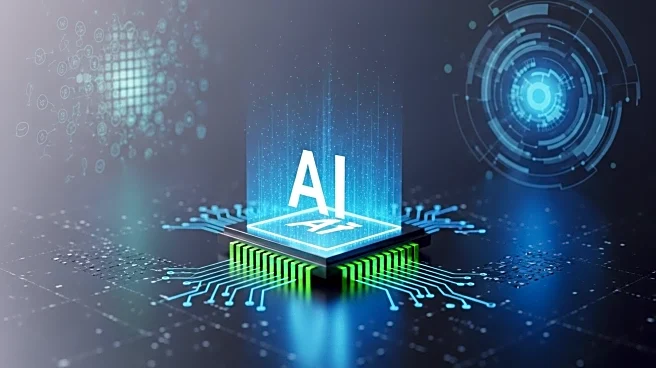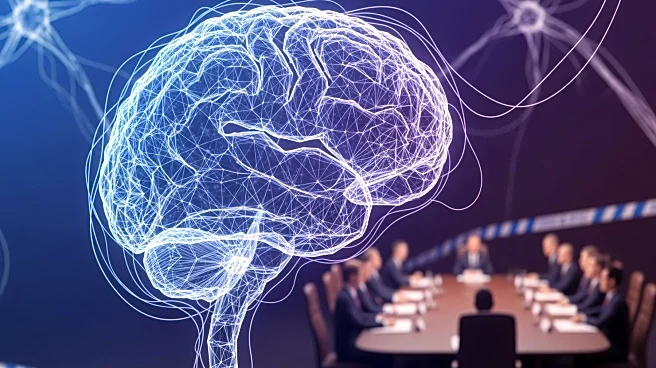What's Happening?
Tesla has announced a strategic pivot from its Dojo supercomputer project to focus on AI5 and AI6 inference chips. This decision, made public in August 2025, marks a significant shift in Tesla's approach to AI and autonomous driving technology. The Dojo project, initially aimed at enhancing AI training capabilities, faced challenges due to inefficiencies in maintaining separate chip architectures for training and inference. As a result, Tesla has decided to consolidate its efforts on AI5 and AI6 chips, which are designed to streamline operations and reduce engineering overhead. The AI6 chip, in particular, is noted for its dual capabilities in both inference and training, aligning with industry trends that prioritize inference workloads in AI applications.
Why It's Important?
This strategic shift is crucial for Tesla as it seeks to maintain its leadership in the autonomous driving market. By focusing on AI5 and AI6 chips, Tesla aims to achieve a more cost-effective and scalable solution for its Full Self-Driving (FSD) technology. The move also reflects a broader industry trend towards inference-centric architectures, which are essential for real-time decision-making in autonomous vehicles. The partnership with Samsung for the manufacturing of AI6 chips ensures access to advanced fabrication processes, potentially lowering production costs and enhancing supply chain resilience. This could lead to significant cost savings and faster deployment of AI-driven features, thereby strengthening Tesla's market position.
What's Next?
Tesla's future success will depend on the performance of the AI6 chip in real-world applications and its ability to deliver scalable AI solutions. The company will need to navigate potential supply chain vulnerabilities associated with its reliance on external partners like Samsung and Nvidia. Additionally, Tesla's ability to maintain its first-mover advantage in autonomous driving will be critical. Investors and industry stakeholders will be closely monitoring the cost dynamics of Tesla's manufacturing partnership with Samsung and the AI6 chip's performance metrics. If successful, this pivot could enhance Tesla's valuation through increased revenue from FSD subscriptions and robotics applications.










